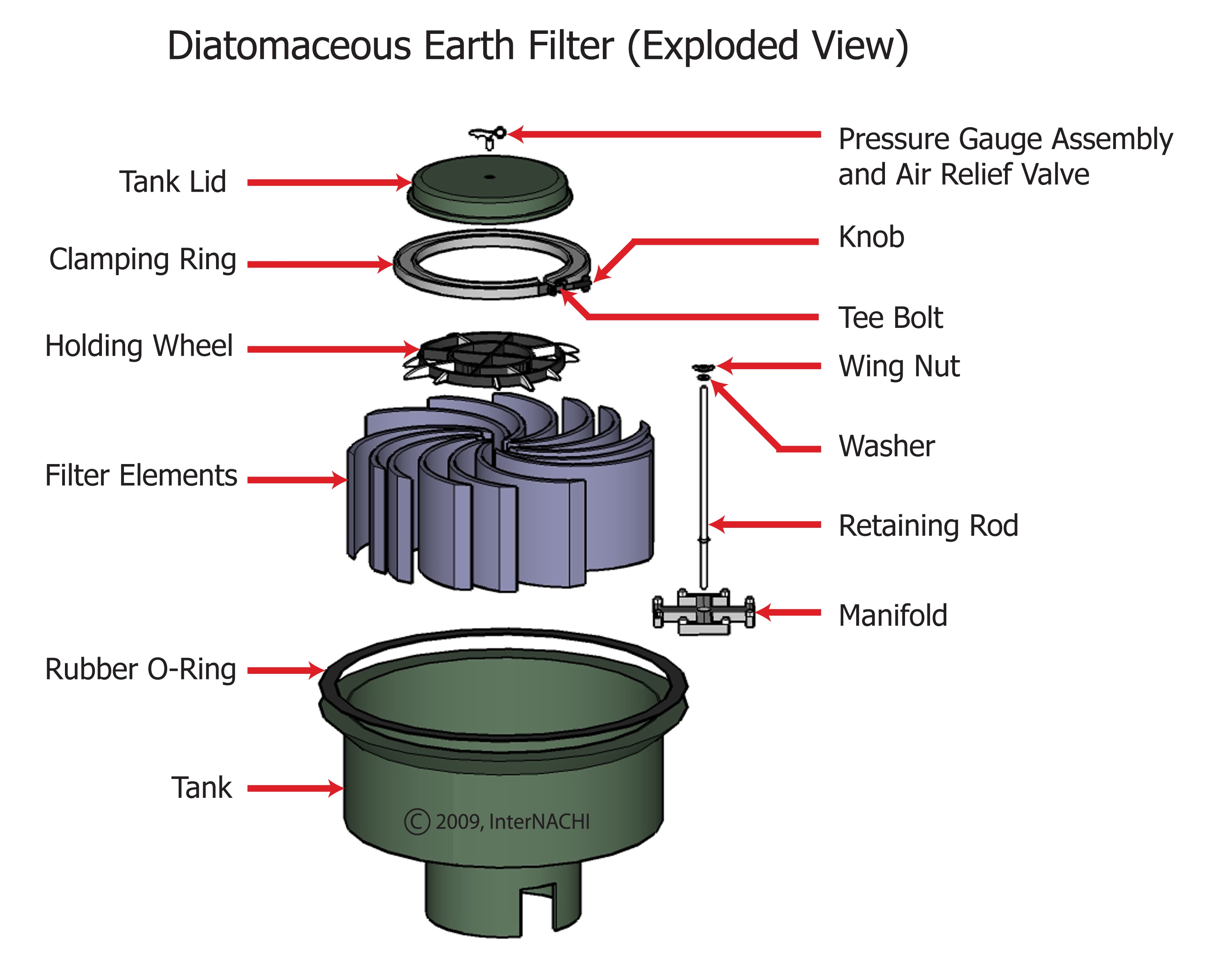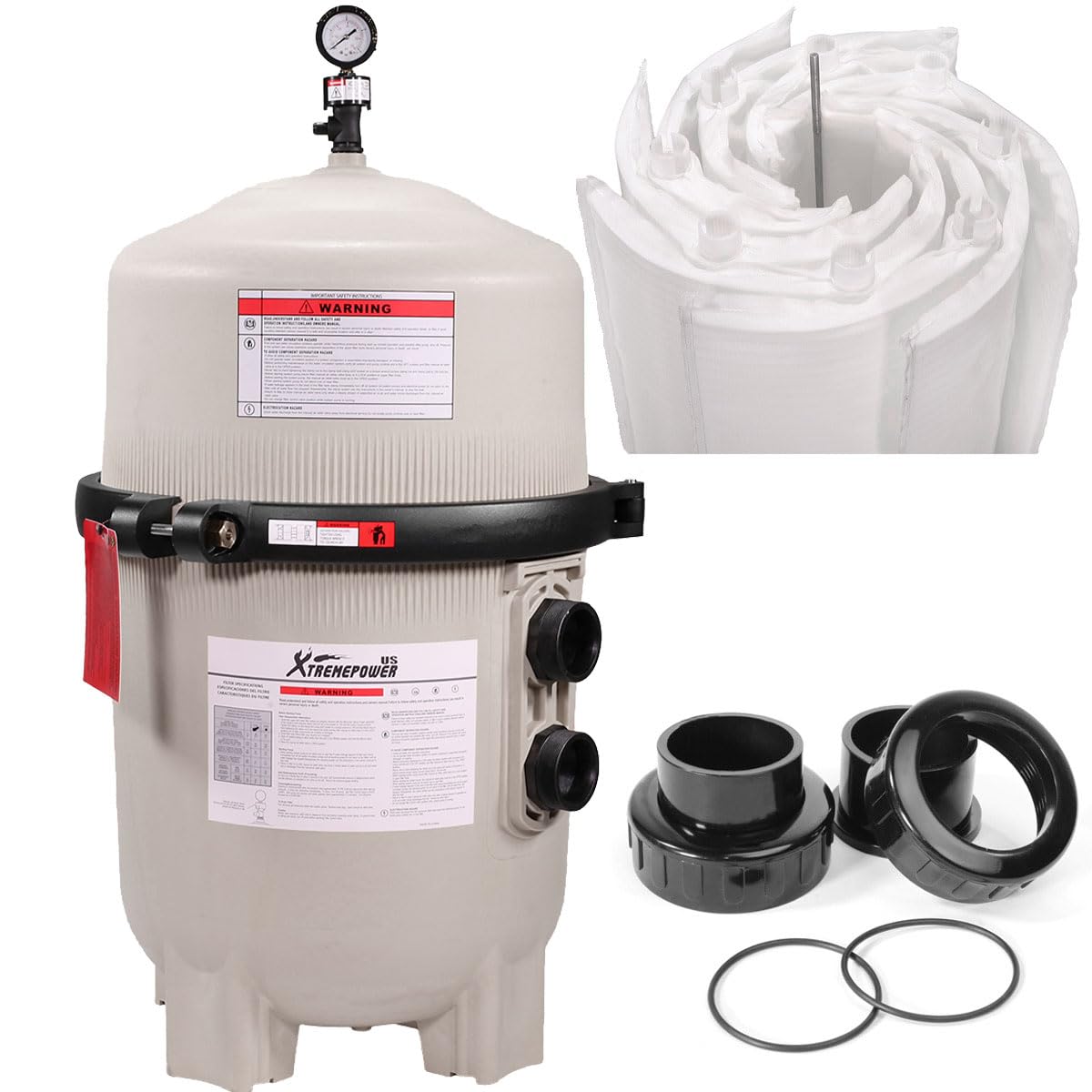The Environmental Benefits of Using Diatomaceous Earth Filtering for Water Purification
The Environmental Benefits of Using Diatomaceous Earth Filtering for Water Purification
Blog Article
Diatomaceous Earth Filtering: A Natural Remedy for Superior Water Filtration

Diatomaceous Earth (DE) filtering system has actually emerged as a compelling approach for enhancing water filtration, utilizing the distinct residential or commercial properties of fossilized diatoms. As concerns over water high quality increase, recognizing the advantages and practical applications of DE filtering system becomes significantly relevant.

What Is Diatomaceous Earth?
Diatomaceous planet (DE) is a normally happening, soft, sedimentary rock that is composed primarily of the fossilized remains of small water organisms known as diatoms. These single-celled algae have an one-of-a-kind, silica-based cell wall that adds to the distinctive properties of DE. The rock is permeable and generally light, allowing it to soak up numerous materials successfully.

As a result of its high porosity and absorbent capacity, DE offers various applications, including its use in farming, parasite control, and, especially, water purification. The efficiency of diatomaceous earth in filtering is associated to its capacity to trap and get rid of contaminations from water, making it an increasingly preferred option amongst those looking for all-natural filtration solutions. Its environmentally friendly nature and convenience better improve its allure across different sectors.
Just How Diatomaceous Planet Filtering Works
The distinct framework of diatomaceous planet (DE) enables it to function as an efficient filtration medium in water filtration systems (diatomaceous earth filtering). Made up of the fossilized remains of little, aquatic microorganisms called diatoms, DE has a very absorbent and porous nature. This complex structure permits DE to catch contaminations and impurities as water streams through it, properly getting rid of bits as little as 1 micron
When water is travelled through a DE filter, the liquid encounters a network of tiny pores that capture suspended solids, microorganisms, and various other unwanted products. The filtering procedure occurs due to both mechanical and electrostatic communications, where larger bits are physically trapped within the DE's matrix, while smaller sized fragments may stick to the surface area because of charged communications.
In addition, DE can be utilized along with other filtering approaches to improve total performance. As water remains to flow through the DE layer, it gradually comes to be clearer and cleaner, showcasing the tool's ability to boost water quality without the demand for rough chemicals. This all-natural purification procedure highlights diatomaceous earth's duty as a reliable and lasting service for water filtration.
Benefits of Diatomaceous Planet Filtering
Performance in water filtration is substantially improved via the use of diatomaceous earth (DE) filtering system, offering numerous benefits that make it a favored selection for many applications. One of the main benefits of DE filtering system is that site its capability to remove a vast array of impurities, including microscopic organisms, debris, and even specific chemicals. This capacity ensures that the water cleansed with this technique is not just tidy yet likewise secure for consumption.
In addition, DE filters have a high flow rate, which permits quicker purification compared to typical techniques. This characteristic is especially advantageous for large operations such as metropolitan water treatment plants or swimming pools. Using DE likewise reduces the demand for rough chemical ingredients, advertising an extra ecologically pleasant strategy to water purification.
Moreover, DE filtering system systems are fairly very easy to preserve, calling for less regular substitute than other filtering media. The all-natural origin of diatomaceous earth adds to its sustainability, making it an eco-conscious choice. Overall, the mix of performance, performance, and environmental advantages placements diatomaceous earth filtering as a leading solution in the world of water purification.
Comparison With Standard Water Filters
When assessing water purification methods, diatomaceous planet filtering system attracts attention in contrast to traditional water filters. Conventional water filters, such as triggered carbon or ceramic filters, mainly concentrate on eliminating contaminants through adsorption or physical barriers. While these approaches work for specific pollutants, they may not catch smaller bits, bacteria, or viruses as successfully as diatomaceous planet (DE) filters.
Diatomaceous earth filtering system uses the distinct structure of diatomite, composed of microscopic, permeable fossilized algae. This enables DE filters to catch fragments as small as site here 1 micron, giving exceptional filtration capabilities. Additionally, DE filters can deal with larger quantities of water without considerable pressure loss, making them ideal for both household and commercial applications.
Moreover, diatomaceous earth is a all-natural and lasting product, presenting less environmental issues compared to some artificial filter media. On the other hand, standard filters frequently require normal replacement and disposal, bring about increased waste.
Applications and Use Cases
Diatomaceous planet (DE) filtering has a varied variety of applications throughout numerous sectors as a result of its efficient purification capabilities. Among one of the most prominent uses DE remains in the food and beverage industry, where it works as a filtration medium for juice, beer, and red wine production. Its permeable structure efficiently removes contaminations, making certain a clear and palatable end product.
In the world of swimming pool upkeep, DE filters are preferred for their ability to trap fine fragments, providing premium water clearness compared to typical sand filters. Additionally, DE is used in metropolitan water therapy facilities, where it aids in the removal of suspended solids, germs, and other pollutants, adding to risk-free alcohol consumption water.

Beyond water filtration, diatomaceous planet finds applications in the farming market as an all-natural chemical and soil modification, advertising healthier plants while reducing chemical usage. Its absorbing buildings make it beneficial in different commercial processes, including oil spill clean-ups and as a filler in building materials. On hop over to these guys the whole, the flexibility of diatomaceous earth filtering positions it as a beneficial solution for improving water quality throughout multiple domain names.
Verdict
Diatomaceous earth filtering represents a efficient and sustainable method for water purification. As awareness of water top quality concerns grows, the fostering of diatomaceous planet filters in various applications is most likely to increase, contributing to improved public health and ecological conservation.
Diatomaceous Planet (DE) filtering has arised as a compelling method for enhancing water filtration, utilizing the special residential or commercial properties of fossilized diatoms. As water continues to flow via the DE layer, it progressively becomes clearer and cleaner, showcasing the tool's ability to boost water quality without the need for harsh chemicals.Effectiveness in water filtration is considerably enhanced via the usage of diatomaceous planet (DE) filtering system, offering countless advantages that make it a favored choice for many applications.When assessing water purification approaches, diatomaceous planet filtering system stands out in contrast to typical water filters. Typical water filters, such as triggered carbon or ceramic filters, primarily focus on eliminating pollutants through adsorption or physical obstacles.
Report this page